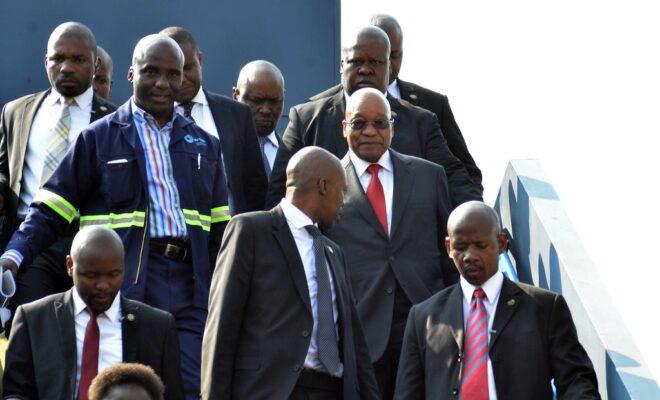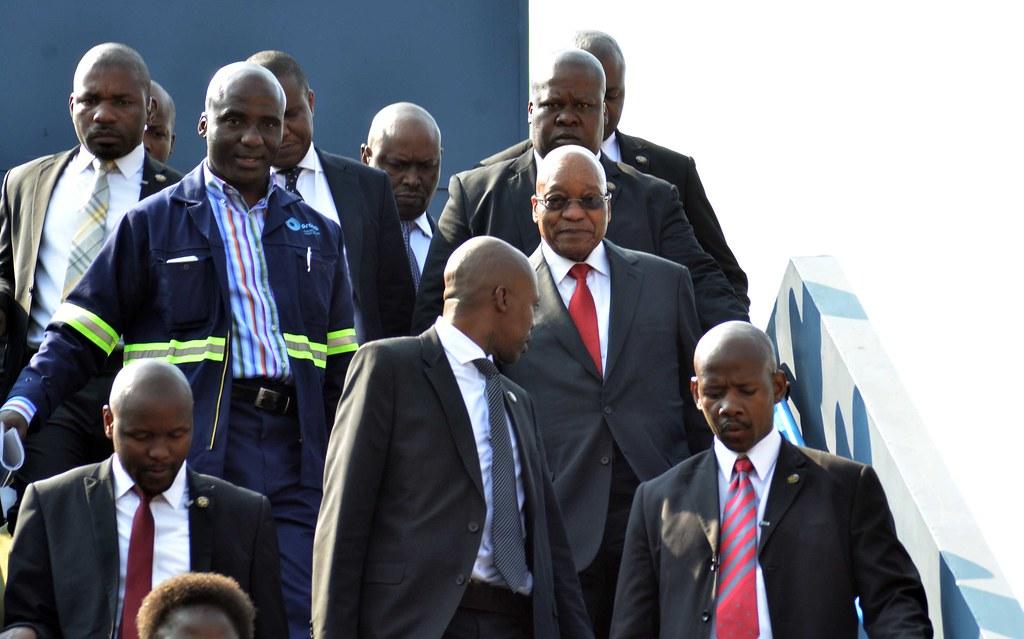South Africa: Zuma can’t be allowed to get away with this

The ex-president’s incarceration was the catalyst, but the causes of unrest have long been bubbling. And things will get worse if he gets his way.

Protests and looting have erupted since President Jacob Zuma was imprisoned on 8 July. Credit: GCIS.
The mayhem of the last few days is a reminder of the danger that South Africa continues to live with as well as an indication of the disfigurement of its law enforcement institutions.
The danger stems from the deferral of a “better life for all” which the governing African National Congress (ANC) promised when apartheid ended in 1994. The crisis in law enforcement is born of a sinister motive to evade accountability. The poor will emerge worse off. The bandits are hoping that state institutions will be too weakened to dispossess them of their bounty and throw them into prison.
South Africa has reached this point following the failure of former president Jacob Zuma’s supporters to prevent his incarceration. He began a 15-month prison sentence for contempt of court last Thursday. The following unrest was not inevitable, but rather a calculated strategy – call it “Plan B”. Zuma zealots had hoped their threats of a violent breakout would scare off the police from arresting the former president, thereby forcing the authorities to hatch some arrangement that would keep him out of prison.
Once the threats proved hollow and Zuma was jailed, the plan morphed to inciting lawlessness. The intention is to inflict sufficient harm on property and sources of livelihood and instil fear of widespread loss of life to a point that authorities regret the decision to proceed with Zuma’s incarceration.
Not unexpected
The looting and violence is not unexpected for a country with the kind of social ills South Africa faces. For instance, 43% of people aged 15-65 can’t find jobs. About two-thirds of the unemployed are below the age of 34, many of them school dropouts with few skills to sell in the labour market. Faced with dim prospects and without much to do, many unemployable young people have taken to drugs and criminality. Drug abuse has emerged recently as the most worrying problem among the country’s youth.
What’s happening now also can’t come as a surprise because of poor police visibility. Police absence has emboldened some. Among them are the many hungry people in South African society, who have decided to join the looting frenzy reassured by the unlikeliness of arrest in this climate.
That is the social deprivation that Zuma’s devotees are successfully exploiting. One also can’t rule out the possibility that these mobs have been encouraged, or bussed in, to loot. It’s not unusual for leaders of the ANC to enlist the help of the underworld, including for murder of their own comrades. If this was the case, the aim is not just wanton destruction and to raise the spectre of mob attacks. Zuma devotees remain focused on freeing their cult-figure. They blame the judiciary for the chaos, saying the jurists have taken an irresponsible decision. Their goal is to discredit the judiciary to justify making a deal that would free Zuma from punishment.
The question of a political pardon
A political pardon, especially under these circumstances, would set this country down a potentially irreversible path. It would mean that all the guilty need to do to avoid accountability is to threaten violence. It would mean Zuma would never be punished for accumulated allegations of corruption.
If he managed to force a pardon now, who says he wouldn’t employ violence the next time he faced jail time? There’s a real possibility that Zuma will go back to prison. He’s currently going through a trial, and evidence of his impropriety is piling up at the Zondo commission probing allegations of state capture and corruption.
If the state pardons Zuma, it’s effectively saying he enjoys indemnity from prosecution. Once that happens, South Africa will lose any claim to being a country governed by the rule of law. It would pave the way for the proliferation of militia forces and mobs organised by strong-men to threaten law enforcement agencies.
Countries don’t renounce the rule of law on account of a mere refusal to comply. That is why the police and prosecutors are called law enforcement agencies. But South Africa is faced with a dreadful failure of law enforcement, resulting from sheer failure to detect the likelihood of the current mayhem. Imprisonment of any heroic figure, especially one who encourages his zealots to break the law, is always likely to incite chaos. And even more so in a country with deep grievances like South Africa. How the country’s intelligence could not have foreseen this is inexplicable. Either they’re hopelessly inept, or they have simply deserted their posts and left the country exposed to internal threats.
Major setback
The current chaos has set the country back. More people have possibly been infected by COVID-19 due to failure to observe preventative measures. Even more deaths are likely to follow because of the disruption of the vaccination programme and lack of staff at hospitals for fear of violent attacks.
This will add to the already high number of child-headed households in the country. Destruction of businesses will lead to a multiplication of unemployment, which is unlikely to decrease any time soon as businesspeople remain uncertain about the return of law and order. This means criminality is likely to rise even more.
South Africa can’t possibly remain the same country in the aftermath of this mayhem. There are just too many storms ahead to simply continue unchanged. State institutions need to rid themselves of people who are not proving their worth. Their retention is truly reckless.
The “ticking bomb” in South Africa does actually have the potential to explode. Mere promises of a better life are not enough to disarm the bomb. Malfeasant elements within the governing party are determined to take the entire country down with them.
This article is republished from The Conversation under a Creative Commons license. Read the original article.![]()






